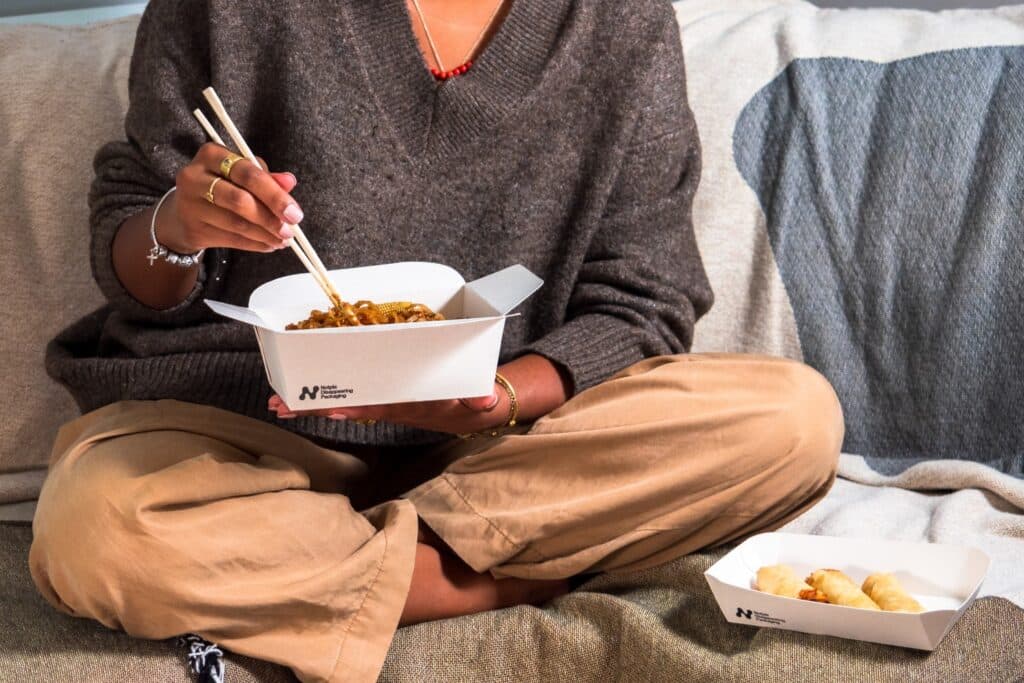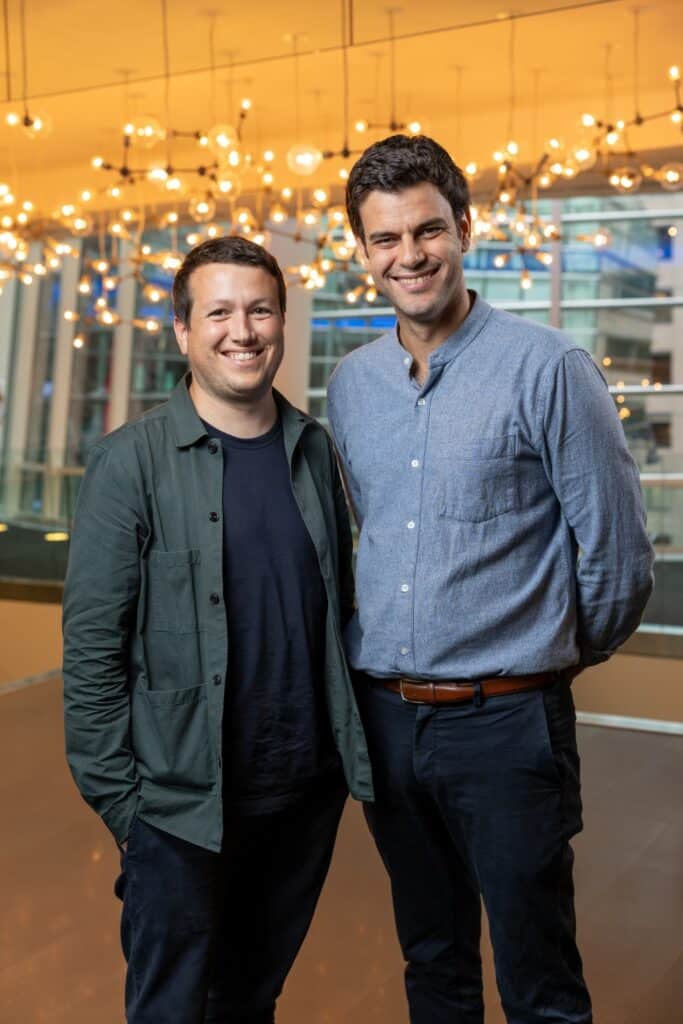
The VOYAGERS climate festival where drinks were served in edible cups
BY JOE ROWAN, June 19 2024
We thought hard about minimising waste at THE HEAT — so the drinks at our climate-tech festival were served in packaging you can eat.
Notpla, a London startup whose regenerative packaging materials are made from seaweed and plants, served its Ooho drinks in 100% edible containers. The packaging is colourless, odourless and flavourless — you simply pop it into your mouth where it will burst, letting you taste the drink inside.
The 10-year-old company’s mission is to replace single-use plastics with natural materials. Notpla, short for “Not Plastic”, created Ooho as its first product, but has extended its range to include seaweed-coated takeaway boxes, rigid cutlery, zero-waste paper, food-oil pipettes, dry food sachets and disappearing bath-oil sachets in prototype, with laundry sachets coming soon. At the 2019 London Marathon, Notpla provided 100,000 Ooho capsules containing Lucozade Sport (650,000 plastic bottles were used the year before). The company has also partnered with Just Eat, providing packaging for the 2023 UEFA Champions League Final; with Tropicana, to make edible juice capsules; and even with the Portland Trail Blazers basketball team to ensure that no plastic bottles were sold at a game.


Notpla was co-founded by Pierre Paslier, 36, and Rodrigo García González, 39, who met while studying innovation design engineering at Imperial College London. “The fun thing is that we started to do things not in the lab, but mostly in our kitchens, in the student accommodation,” García González recalls. “From there, we were able to iterate several times and get a bit of funding. And from there, we started this company.”
Paslier started out as a packaging engineer at L’Oréal; García González had been working with artificial clouds to produce water. “I was trying to avoid plastic because I had been working quite a lot with plastic recycling and trying to avoid plastic bottles,” he says. It was only when they combined forces that they had their eureka moment. “Together we started to identify different ways of using natural materials to convert into packaging. One of the ideas was seaweed, which had been used for centuries — but not much for packaging. So we started to use it for packaging.”

The 75-strong company is on a roll, having sold more than 10 million units of its products and with a recent US launch. Its seaweed packaging was named the first plastic-free material under EU regulation in November 2023, having been certified as such in the Netherlands. Notpla also won Prince William’s £1 million Earthshot Prize in 2022 and the Grand Prix in Design at Cannes Lions International Festival of Creativity a year earlier.
It has raised £10 million in Series A funding after a £4 million Seed round and an enthusiastically met crowdfunding campaign, in which 900 investors put in anywhere from ten pounds to a few thousands, raising close to a million dollars in just three days.
The journey hasn’t been without its challenges. “It’s quite hard to fight against the status quo,” García González reflects. “The plastics industry is quite well established. Sometimes it’s hard to disrupt it due to the scale, to the investment that has been [put] into it, to the properties of plastic. You have to understand that if you want to replace plastic for another material, the material is going to be different. It’s going to behave differently.” But from the start the founders knew not to be daunted by the naysayers. “We were presenting to some of the professors in Imperial College and they said, ‘It’s not going to work,’” García González recalls. “The next day we had the prototype.”
What’s next for Notpla? “We’ll keep trying to replace the most single-use plastic as possible. At the moment, we’re focusing quite a lot on takeaway boxes and stadiums.” This includes a recently announced three-year partnership with Levy, which will bring around 75 million of their seaweed-based food containers to over 50 sporting and event venues around the UK. In nine countries already, the company has further international ambitions.
“We are looking at other opportunities that could be in Southeast Asia because there’s quite a lot of seaweed there,” García González says. “We have also done a trial in Ghana with the United Nations to replace plastic in little sachets.”
This will bring them closer to their pledge of removing one billion units of plastic by 2030, ensuring that single-use plastics are replaced at scale using only sustainable packaging.
Learn more about Notpla at Notpla.com

